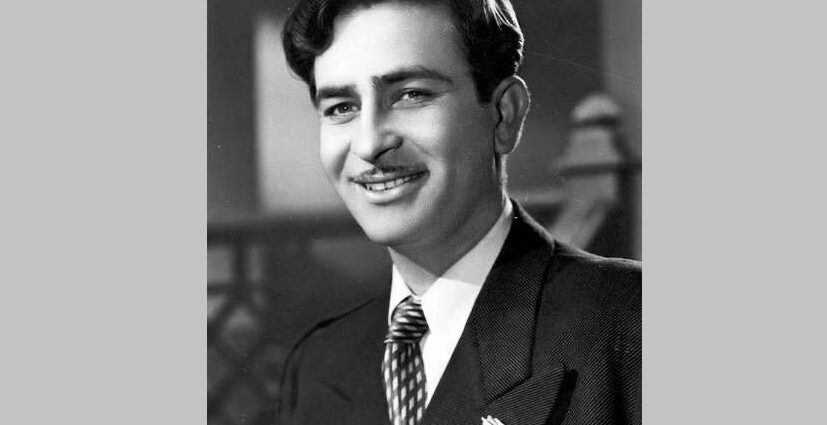विजय मनोहर तिवारी
यह एक पुस्तक है, जो राहुल रवैल ने लिखी है। वे एक प्रसिद्ध फिल्म निर्देशक हैं, जिनकी सिनेमाई शिक्षा-दीक्षा राजकपूर के साथ हुई है। पुस्तक की भूमिका रणधीर कपूर ने लिखी है। प्रभात प्रकाशन ने छापा है। पिछले दिनों दैनिक जागरण समूह के लोकप्रिय वार्षिक संवादी का आयोजन लखनऊ विश्वविद्यालय में हुआ, जहाँ मेरी भी एक पुस्तक पर बेस्ट सेलर में सूचीबद्ध होने के कारण विशेष सत्र रखा गया था। राहुल रवैल की यह पुस्तक संवादी के दूसरे दिन का विशेष आकर्षण थी।
हो सकता है राजकपूर पर और भी पुस्तकें लिखी गई हों, किंतु राहुल रवैल को पढ़ने के बाद इतना कहना चाहूँगा कि इससे गहरी अभिव्यक्ति संभवत: उनमें नहीं होगी। इसका कारण है। राहुल रवैल स्कूल के दिनों में ही लगभग पढ़ाई छोड़कर राजकपूर की छाया में सिनेमाई समझ को विकसित करने जा पहुँचे थे। वे स्कूल में ऋषि कपूर के सहपाठी थे और उनके पिता एचएस रवैल राजकपूर के मित्र थे।
यह पुस्तक राजकपूर के सिनेमाई व्यक्तित्व का विराट प्रदर्शन करती है, जिसके कारण उन्हें शोमैन ही नहीं, सबसे बड़ा शोमैन कहा गया। उनकी सूक्ष्म दृष्टि, मनोरंजन प्रेमी भारतीय दर्शकों की सिनेमा से अपेक्षाएँ और राजकपूर की समझ, परदे पर ढाई-तीन घंटे की बाँधे रखने वाले चलचित्रों की एक प्रभावी कथा, उसे कैमरे की दृष्टि से रीलों में उतारने की तकनीक, ह्दय में उतरने वाले गीत और गहरी छाप छोड़ने वाला उनका मधुर संगीत, फिल्माई गई रीलों के प्रयोगशाला में संपादन का कौशल और सबसे ऊपर, अपनी कल्पना को साकार करने में किसी भी सीमा तक जाने की हर प्रकार की अविलंब तैयारी, ये ऐसे कोण हैं, जिनसे राजकपूर के योगदान का आकलन किया गया है। वर्षों तक राहुल उनके सहायक बनकर रहे। 72 रुपए उनका आरंभिक मासिक वेतन था।
राहुल रवैल ने “मेरा नाम जोकर’ की असफलता से आर्थिक रूप से नष्ट होने की कगार तक पहुँचे राजकपूर को भी देखा और “बॉबी’ की रचना प्रक्रिया में अपनी ही राख से फिर आकार लेकर आकाश में उड़ान भरते हुए उन्हीं राजकपूर को देखा, जो एक-एक सीन की कल्पना में अदृश्य परछाईं की भांति उपस्थित रहे। किशोर आयु की प्रेम कथा के लिए नए चेहरों को लेकर आए और शैलेंद्र सिंह के रूप में एक नया स्वर भी। उनके निवेशक उनसे छिटके हुए थे लेकिन बॉबी की सफलता ने सिद्ध किया कि राजकपूर का सिक्का तब तक चलता रहेगा, जब तक आरके की टकसाल में उनकी छाया रहेगी। मुंबई के चेंबूर क्षेत्र में आरके स्टुडियो को खड़ा करने और उसके विस्तार की यात्रा ऐसा रोचक वृत्तांत कोई लिख नहीं सकता था।
वह कोई दृष्टि ही होती है, जो कुछ बड़ा रच डालती है। अगर वह दृष्टि आपके पास है तो आप जहाँ होंगे, वहीं कुछ अद्वितीय हो रहा होगा। और केवल दृष्टि नहीं, इतिहास में अंकित होने लायक सृजन के लिए कठोर अनुशासन और 360 डिग्री की बहुआयामी सामर्थ्य भी उतनी ही आवश्यक है। मैं अक्सर कहता हूँ कि इसके लिए पहले दिल और दिमाग खोलने आवश्यक हैं, तिजोरी का नंबर बाद में आता है।
चक्रवृद्धि जैसे ब्याज के साथ भारी कर्जे में डूबे राजकपूर अपनी अगली फिल्म के किसी एक दृश्य के लिए भी सब कुछ दाव पर लगा सकते थे, जबकि कृष्णा कपूर उनसे कह रही हैं कि एक घर तो ले लो, कब तक किराए के घरों में रखोगे? ऐसे संकटपूर्ण समय में भी वे एक गीत में दो मनोहारी दृश्यों के लालच में एक सर्वोत्तम लोकेशन के लिए हफ्तों कश्मीर में फिरते रह सकते थे, क्योंकि गीत में एक ऐसी पंक्ति पर उनका ध्यान अटका है, जिसमें रास्ते के भूलने की बात है-“हम तुम कहीं को जा रहे हों और रस्ता भूल जाएँ!’
राजकपूर के घोंसले में अपने पंखों को शक्ति संपन्न बनाने वाले राहुल रवैल स्वतंत्र निर्देशक के रूप में हिंदी सिनेमा में अपना महत्वपूर्ण स्थान रखते हैं। उन्होंने राजेंद्र कुमार के लिए “लव स्टोरी’ और धर्मेंद्र के लिए “बेताब’ के अलावा अर्जुन, अंजाम, बेखुदी और डकैत जैसी अपने समय की सफल फिल्मों का निर्देशन किया। लव स्टोरी में कुमार गौरव और बेताब में सनी देओल पहली बार परदे पर उतारे गए थे। डकैत की शूटिंग के लिए वे राजकपूर की सलाह पर ग्वालियर आए और फूलनदेवी से मिले। जावेद अख्तर के साथ चंबल के बीहड़ों की रैकी की ताकि कहानी में दम आए और असली डाकुओं को अपनी आंखों से देखकर परदे पर उतारने की उनकी तैयारी गहरी हो।
सागर के कवि, गीतकार, राजनेता सबके प्रिय विट्ठलभाई पटेल तब अर्जुन सिंह सरकार में एक शक्तिशाली मंत्री थे। राजकपूर ने उन्हें फोन किया। ग्वालियर जेल में राहुल रवैल और जावेद अख्तर की फूलनदेवी से भेंट के समय वे भी उपस्थित थे। राहुल रवैल ने जब फूलन से पूछा गया गोला-बारूद का भंडार कैसे मिलता था तो वह गाली देकर बोली कि अब क्या बताऊं इनको? विट्ठलभाई ने कहा कि जो बताना है सच सच बता दो, यहां कोई तुम पर एक्शन नहीं लेगा। फूलनदेवी एक पुलिस अधिकारी की ओर मुड़कर उसे माँ की गाली देकर बोली थी-“ये ….डिप्टी एसपी बेचता था।’
विट्ठलभाई पटेल के सहयोग से राहुल रवैल की डेढ़ सौ लोगों की टीम शूटिंग करने चंबल में आई। वे लिखते हैं कि दो हजार पुलिसकर्मियों को इस टीम की सुरक्षा और सुविधा के लिए तैनात किया गया था। 40 दिन की शूटिंग भिंड-मुरैना के क्षेत्र में तब तक चलती रही जब तक 45 डिग्री के तापमान में काम करना असहनीय नहीं हो गया।
“मेरा नाम जोकर’ के लिए जब संपादन की प्रक्रिया चल रही थी तब राजकपूर को सर्कस के कुछ शॉट कम महसूस हुए, जिन्हें दूर बाहर से फिल्माया जाना चाहिए था। वह सर्कस तब भोपाल आ गया था। राहुल रवैल को केवल तीन शॉट की चार घंटे की शूटिंग के लिए भोपाल भेजा गया। ऐसे मांग आधारित सर्कस शॉट के लिए उनका पाँच बार अलग-अलग शहरों में जाना हुआ। राजकपूर अपना कोई भी काम कामचलाऊ ढंग से करना पसंद नहीं करते थे, चाहे कितना भी खर्च हो जाए या कितना भी समय लगे। काम चौबीस कैरेट ही चाहिए।
खाने-पीने के शौकीन राजकपूर को पुणे बड़ा प्रिय था, जहाँ लोनावाला में एक फार्म हाऊस बनवाया था। वे मुंबई से पुणे की डेक्कन क्वीन की यात्रा के भी शौकीन थे, जिसमें परोसे जाने वाले खाने का लुत्फ उन्हें इस ट्रेन की ओर खींचता था। वे इस ट्रेन की कैंटीन कार में सवार होते और केवल ट्रेन में ही खाते हुए नहीं जाते, जहाँ ट्रेन रुकती तो उतरकर भी कुछ न कुछ खाने के लिए ले लेते।
एक बार अपने बढ़ते हुए वजन को कम करने के लिए वे नेचर क्योर क्लीनिक में भर्ती हुए, जो लोनी के पास कहीं था। रहने के लिए जंगल में एक कॉटेज किराए पर लिया। राहुल रवैल एक साप्ताहांत अपने गुरू से मिलने गए, जहाँ दोपहर के भोजन के लिए एक ग्रामीण साइकल पर मस्त चाइनीज रेस्तराँ के पैकेट लिए चला आ रहा था। यह राजकपूर की जीवन शैली थी। वहाँ बाहर का खाना प्रतिबंधित था। वे नेचर क्योर में भर्ती होने वाले अकेली विभूति थे, जिनका वजन कम होने की बजाए निकलने तक तीन किलो और बढ़ गया था।
राहुल रवैल की पुस्तक सिनेमा के एक शिक्षक के रूप में राजकपूर का परिचय कराती है। राहुल से उनका संबंध इतना प्रगाढ़ बना कि स्वतंत्र निर्देशक के रूप में अपनी पेशेवर पारी शुरू करने के बाद भी अपनी हर फिल्म के लिए वे राजकपूर के चरणागत रहे। कहानी से लेकर दृश्यों की सूक्ष्म प्रस्तुति, एंगल और लोकेशन तक राजकपूर अपने अनुभव अपने इस समर्पित शिष्य के साथ अंत तक बांटते रहे।
मैं कहूंगा कि सिनेमाप्रेमियों को ऐसी कुछ पुस्तकें भी पढ़ना चाहिए, जिनमें परदे के पीछे की जानकारियाँ और किस्से मिलें। सिनेमा एक तिलिस्म है। जो सच में नहीं है, उसे सच की भांति चलचित्रों में उतारना और वो भी एक कथा के तारतम्य में, गीतों और संगीत के कर्णप्रिय तड़के के साथ।
राजकपूर अपनी विधा के सच्चे महापुरुष थे। राहुल रवैल को उन जैसा गुरू मिला, यह उनका सौभाग्य था। पुस्तक के शीर्षक में बॉलीवुड शब्द अच्छा नहीं है। यह हॉलीवुड की घिसीपिटी सी नकल है।
क्या हिंदी सिनेमा भाषाई रूप से इतना विपन्न है कि अपने लिए एक मौलिक शब्द नहीं ला सकता?








